
Jon Leiberman
Oh gosh. I have been interested in reporting and having an audience and getting content since I was in second grade. I used to do the morning news and stuff at elementary school, so it goes back quite a ways. And then I ended up going to Northwestern University for journalism school, and yeah. And I went right into TV right after journalism school, and the rest is history…I’ve always known what I’ve wanted to do with my life and my career, and that is create compelling content, whether it’s in front of a camera, in front of a microphone, behind the microphone, behind the camera. That’s what I like to do.
RRFC: So were there any early influencers? Any people you were watching or listening to?
Jon: In 1983, I used to listen to the Baltimore Orioles on the radio all the time, and announcers by the name of Jon Miller and Tom Marr. Tom I’m actually still in touch with to this day, he’s become a friend. He’s a radio icon in Baltimore and Jon Miller, of course, from ESPN and the San Francisco Giants and all that. So yeah, they were early influences. I love Tom Brokaw on television, all of the 60 Minutes crew, so yeah. I have a lot of those influences…I wanted to be a sports play-by-play announcer in the beginning, so I used to actually take my recorder and my microphone to the upper deck of Memorial Stadium in Baltimore, and I used to broadcast the games as they were happening. So that’s how much I loved it.
RRFC: Can you talk to us a little bit about your journey from TV reporter to radio personality?
Jon: My journey has been unique, I would say, to say the least, because I went from a hard news reporter and anchor to an advocate for crime victims while I was correspondent at America’s Most Wanted, to essentially a personality and an entertainer at the Howard Stern Show. And the only, the commonality among all of it is that I have been providing content for people to consume in different platforms. I wrote a book as well. In my mind, it’s all about providing content, no matter how you do it.
RRFC: What do you consider compelling content, and where do you get your hook?
Jon: Actually,
I started my own company which consulted with other companies on just this, creating content and storytelling. And I always tell my clients the number one thing when you’re creating content is to tell a story, and to break through all the other noise that’s out there. The reality is people have so many choices right now that your content has to be compelling in order to break through the norm. And the way to make compelling content, no matter what platform, is to tell a story. People love stories. And that’s the advice that I give all sorts of young content creators is you have to tell a story, and you have to find an interesting hook in that story in order to break through to the audience…I always tell my students, “Why should my audience care?” You really need to answer that question when you’re creating content, you have to know who your audience is, and you have to be able to answer that question, “Why should my audience care about what I’m planning to tell them or show them?”
RRFC: How immersed are you in content, like looking for stuff, looking for ideas? Do you do a lot of reading?
Jon: Yeah, I read everything in sight. I want to be a master of my craft, and I do a lot of different things…I’m always hunting for, “How can we get better? How can we create compelling content? What’s the latest social media channel that we should be in the know about?” And everything like that.
RRFC: How is the broadcasting business different now than it was 10 years ago?
Jon: The reality is there’s just so many choices for listeners and for viewers, and there’s so many free options, with YouTube and everything. The entire business has changed with podcasts and just all the choices. And basically, the biggest difference is anybody can be a content creator now. Gone are the days when you needed to work for a major broadcasting company or TV station to get your content out there…anybody can create content. And yeah, the entire business has changed…But the first trick is—and what I tell my students in the program is—the first trick is to come up with good content. The audience will always follow if you’re giving them something worth listening to, or worth watching. So, it is hard to reach the audience, but in my mind that’s always secondary, and that comes after you have created really good content. Then you try to find the audience, the platform, and all that kind of stuff.
RRFC: How do you deal with disappointment in this business?
Jon: Here’s the thing: being in this business is 99% of the jobs you go after, you’re not going to get. That makes it all that much sweeter when you land the job that you really want. This business is about persevering, it’s about networking, it’s about talent, it’s really about hard work. It’s a combination of all those things. But, yeah, disappointment and rejection is a part of this business, because it’s highly competitive, and a lot of people want to get into it.
RRFC: Do people in broadcasting still need to have these “golden voices?”
Jon: I think it’s still important that we have voices that we can trust, that we can turn to, but I’m also of the mindset that anybody’s voice can stand out these days.
RRFC: Any tips you can give our students on building a good demo?

“..be yourself. Don’t try to be somebody you’re not”
I would say, be yourself. Don’t try to be somebody you’re not, because that’s gonna backfire every time…The best way to make a good demo is to record yourself and then just keep listening to yourself over and over and over, and try to make improvements on what you hear.
RRFC: Did you have any mentors as you were coming up?
Jon: Over the years, I’ve had so many people who have helped me in my career. [One] was Ava Greenwell, she was one of my professors who was always pushing me to get better and better. When I was a TV reporter in Albuquerque, New Mexico, two long time news men there, a guy named Dick Knipfing and a guy named Larry Barker, were my mentors there…I’ve had a ton of people help instill a whole lot of knowledge.
RRFC: And is the kind of knowledge you get when somebody is working with you personally…is it different than what you get when you’re listening to a lecture?
Jon: Absolutely. There’s such a huge difference between learning out of a book, and learning from somebody who’s done it, and who’s been there, and who knows how it works…You want to learn from somebody who’s been there and done that.
RRFC: What do you enjoy about mentoring students?
Jon: I had a lot of people help me as a young broadcaster, so to me it’s just about giving back a little bit, and helping…I think [this] is a great program, because I think that it allows students to come face-to-face with real people in the business. That’s really the bottom line. I went to one of the top journalism schools and communication schools in the country…I had a wonderful education, but I also think it’s the people that mentored me over the years that helped further my career…It’s mentors that keep you in the business, and help you get jobs.


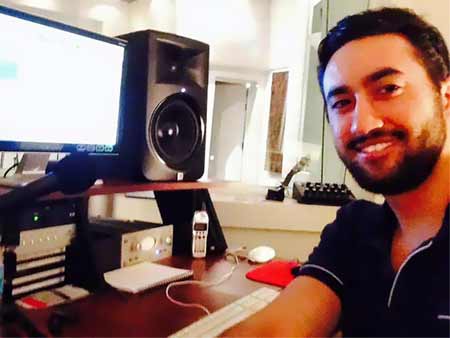
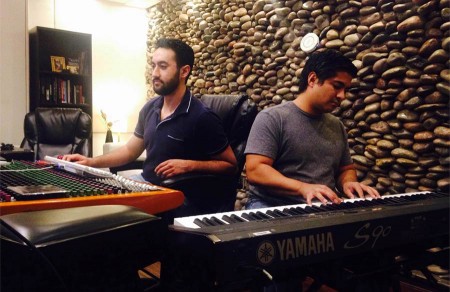
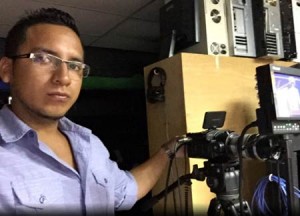
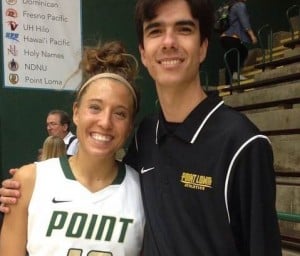
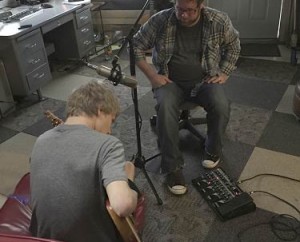



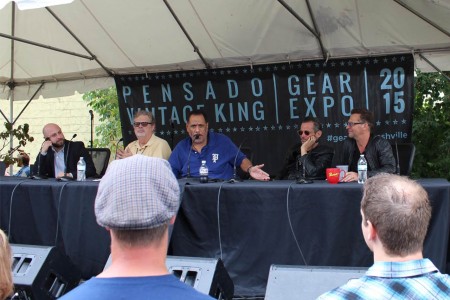
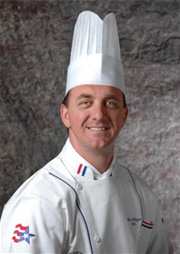 “I went to the culinary institute of America in Hyde Park but learned just as much during my externship at the Four Seasons Hotel in Newport Beach.
“As an executive chef I used to throw away resumes from kids dumb enough to blow 65k to attend The Art Institute and Le Cordon Bleu because they had no experience and prima donna attitudes. Cooking in the trenches of a real cutting edge kitchen is the only way to go.
“Students’ lack of experience, in fact zero experience after graduation and accumulated debt are what’s wrong with the culinary school system of today. Le Cordon Bleu charges 65k for 2 years of playing house! Conventional culinary school’s training is for suckers. Culinary schools are for profit and proud of it!”
— Martin Gilligan CEC, MCFE, American Culinary Federation’s ‘Chef of the Year 2005’ Los Angeles, CA
“I went to the culinary institute of America in Hyde Park but learned just as much during my externship at the Four Seasons Hotel in Newport Beach.
“As an executive chef I used to throw away resumes from kids dumb enough to blow 65k to attend The Art Institute and Le Cordon Bleu because they had no experience and prima donna attitudes. Cooking in the trenches of a real cutting edge kitchen is the only way to go.
“Students’ lack of experience, in fact zero experience after graduation and accumulated debt are what’s wrong with the culinary school system of today. Le Cordon Bleu charges 65k for 2 years of playing house! Conventional culinary school’s training is for suckers. Culinary schools are for profit and proud of it!”
— Martin Gilligan CEC, MCFE, American Culinary Federation’s ‘Chef of the Year 2005’ Los Angeles, CA



